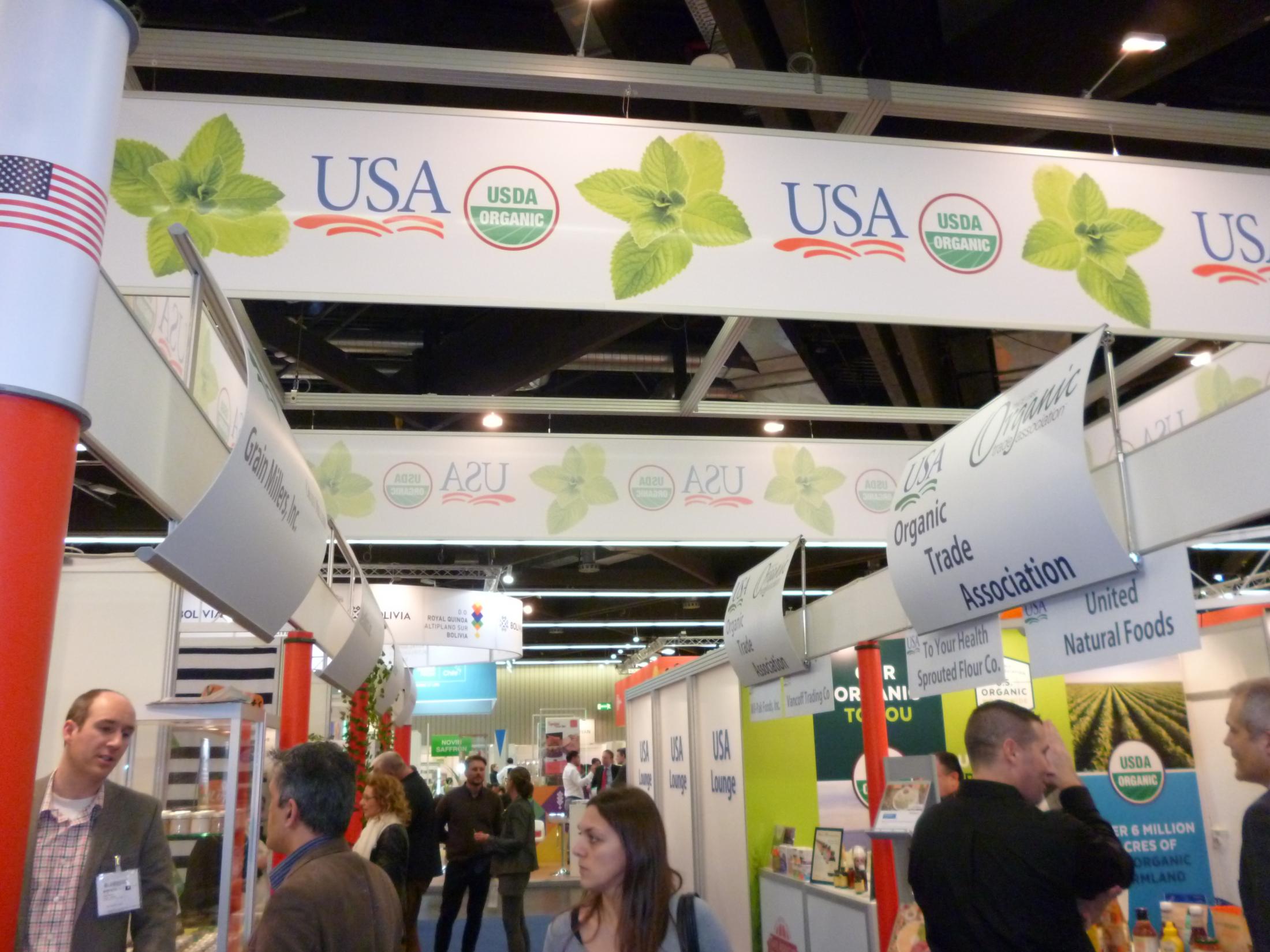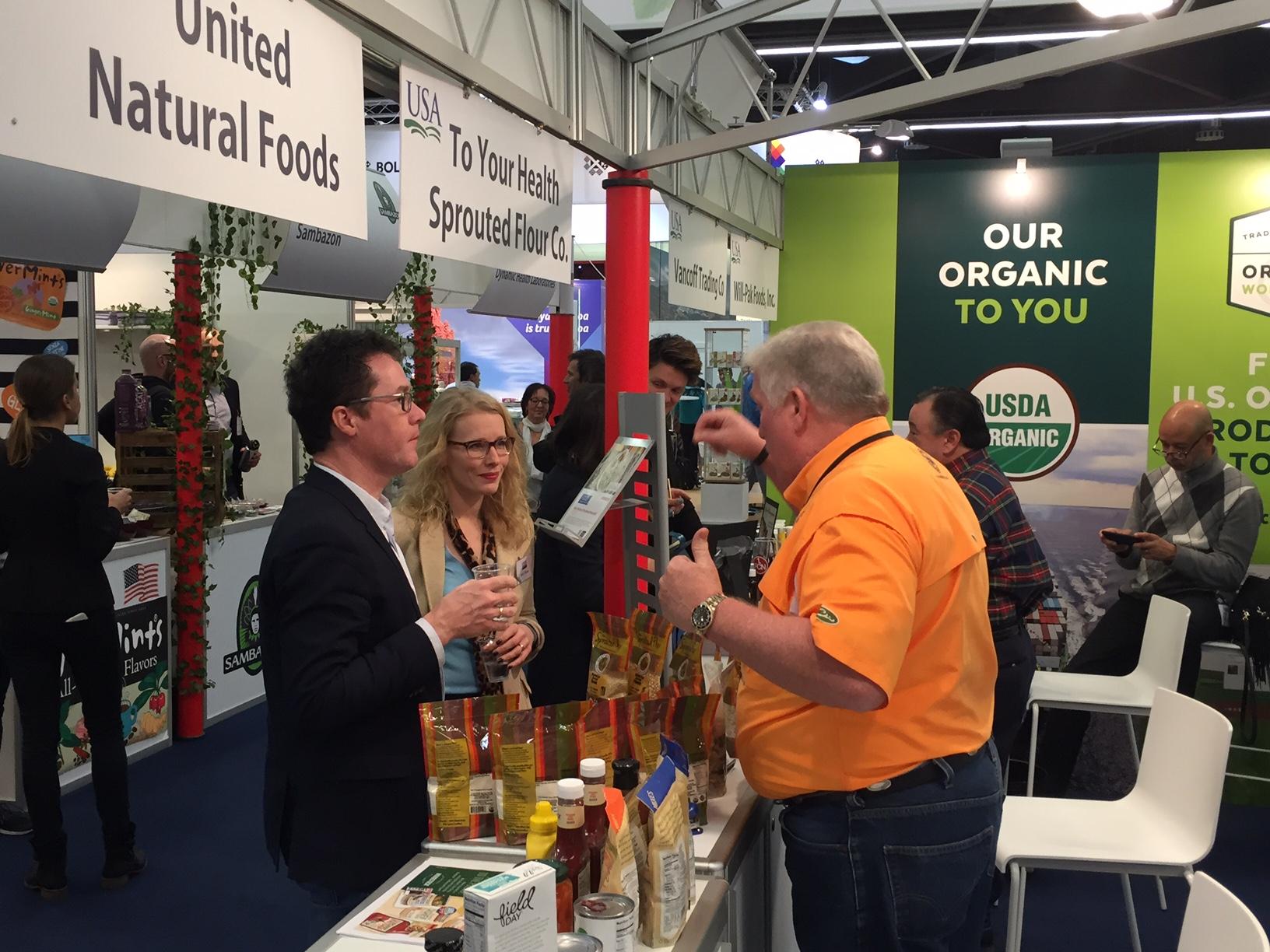Expanding Export Opportunities for U.S. Organic Products

The United States is the world’s premier producer and supplier of organic food and agriculture products and 24 U.S. companies recently had the opportunity to introduce more than 150 of their finest organic products to the international market at BIOFACH, the world’s largest organic trade event, held each year in Nuremberg, Germany.
BIOFACH 2017 brought together a record 50,000 visitors from 134 countries looking to discover new, premium organic products. During the event, American exhibitors in the USA Pavilion achieved great success. They established more than 260 serious business contacts, closed immediate onsite sales well exceeding $330,000 and, most importantly, earned an estimated $8+ million in projected 12-month sales.
Key to their success was support from the Market Access Program (MAP), through which the Foreign Agricultural Service (FAS) partners with U.S. agricultural trade associations, cooperatives, state regional trade groups and small businesses to promote international sales of U.S. farm and food products. A recent independent study found that for every $1 invested in USDA export market development programs like MAP, $28 is returned in export revenue.
Trade events like BIOFACH are a prime investment opportunity to help the U.S. organic industry continue expanding and making its mark on the profitable European market. Germany, the host of the event, is the second-largest organic market in the world. Sales of organic foods in the country have tripled since 2000, peaking at more than $9.6 billion in 2015.
More importantly for U.S. agribusinesses looking for export opportunities, domestic organic agriculture production in Germany is unable to meet consumer demand, meaning that Germany is increasingly dependent on imported organic products. This scenario provides good opportunities for U.S. organic producers and exporters – for everything from fruits, nuts and vegetables to meat and dairy products.
Exporting to Germany and throughout Europe has also been streamlined by the EU-U.S. Organic Equivalence Arrangement. Since 2012 organic products certified in the United States or EU can be sold as organic in either market. The arrangement broke down many of the barriers that U.S. organic producers, especially small and medium-sized farmers, were facing in exporting their goods. The organic arrangement expanded market access and reduced duplicative requirements and certification costs while protecting organic integrity.
As global demand for organic food and agriculture products continues to grow, FAS remains a vital resource by helping establish expanded export and business opportunities for the U.S. organic industry.

